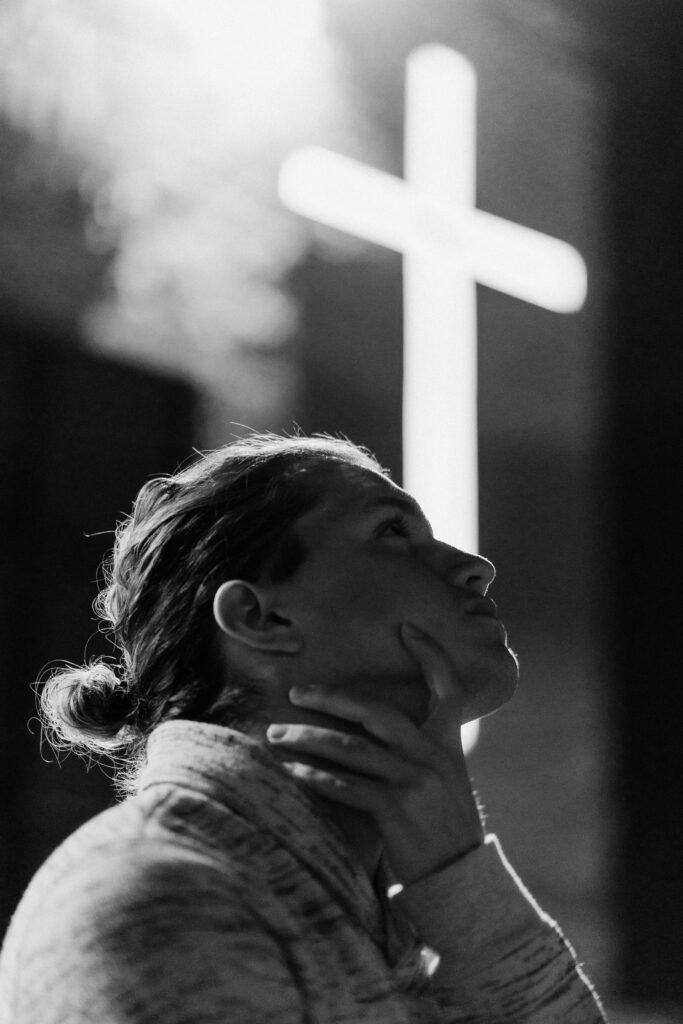God – The Owner of Everything
A steward or administrator needs to know for whom he is working. Otherwise, to whom would he give an account of his stewardship?
This first lesson has been written so that you might know the truth that forms the foundation of this course. This truth is that we are not the owners of what we possess because it is God who is the owner of everything that exists.
As a Christian worker or believer, you need to know that you should work not for yourself but for the owner and Lord of your life and of all that you have. If you really understand the full meaning of this truth, it will revolutionize your life and ministry. And without a doubt it will change your way of thinking and living.
UNDERSTANDING THE IDEA OF OWNERSHIP
Objective 1. Distinguish between true and false ideas of ownership.
The False Idea of Ownership
We may begin our study of Christian stewardship first of all by clarifying and explaining the idea of ownership. Some people believe that the simple fact of possessing or using a thing makes them its owner. This seems to be an idea that is deeply rooted in our being—an idea that we have had since we were children. Just try to take something away from even a four-year-old and you will hear his cry of protest! It is true that we may rent or borrow something and thus have it, but it is not ours.
Perhaps some people don’t return things they have borrowed because they don’t have a clear idea of what ownership is. A certain young man received a letter in which he was asked to return the accordion (a musical instrument) which had been loaned to him. He angrily said to me, “The owner doesn’t know music and so he doesn’t need it. He has enough money to buy another if he wants to. I didn’t have an accordion and I use this one in the Lord’s work.” As you might guess, he had no intention of returning the accordion.
You must be able to tell the difference between possession and ownership in order to understand the doctrine of Christian stewardship. The disciples of the first church give us a notable example of people who made this distinction. We read that “no one said that any of his belongings (the things he possessed) was his own” (Acts 4:32).
The Basic Element of the Idea of Ownership
Perhaps you may ask yourself, What makes a person the owner of something? I may reply that it is the power to prevent anyone else from possessing or using what we consider to be ours. You may leave a chair outside on the terrace or patio of your house, allowing the sun and the rain to ruin it. You don’t use it, but neither do you let anyone else use it. If anyone were to take it away to his house, you would consider him to be a thief. You would be right to do so. And the laws of society are on your side. This is so because according to the values of this world the power to keep others from using an object is the basic element of the idea of ownership.
That idea may seem to be selfish. It is. It is not a biblical idea of ownership, but one which rules in our worldly society. However, we will study the biblical idea of ownership further on.
The Unique Attributes of an Owner
The owner of something has certain attributes, or perhaps it would be better to say rights, which a renter, borrower, or simple user does not have. We would call these attributes or rights unique. The owner can do what he wants to with what is his. He can use and abuse what he owns. He can sell it, exchange it, or give it away. He can use it wastefully or abandon it. He can even ruin it if he wants to. No one can prevent him, for it is his. This attribute is the one which we may call the sovereignty of the owner over his property.
At times during history in various parts of the world slavery has existed. The slave belongs to his owner or master. His owner might buy him at a slave market or take him as prisoner of war. Because the slave is his, the owner has authority or lordship over him. That is, he has a right to command the slave and the slave is to obey him. Thus we would say that an owner has sovereignty over all that he owns but lordship or authority over persons. A slave may disobey the will or authority of his master, whereas a possession which is not a person is under complete control of the owner.
We will come back to these attributes of an owner again as we develop this lesson.
IDENTIFYING THE OWNER
Objective 2. Select statements that identify the true owner and facts about His ownership.
False Owners
You and I each have things that we consider to be ours. But are we really their owners? If we aren’t, who is? Before answering these questions, it would be good if we would consider two ideas. These two ideas are opposites with respect to who is the owner of our goods.
The Individual as the Owner
An idea which has endured for thousands of years, but emphasized more strongly during the last century, is that the individual is the owner. The major defect of this idea is that it has justified man’s natural self-centeredness and brought much injustice to the world. If a person has the resources or goods to help meet the needs of his neighbor and doesn’t want to, he cannot be forced to. He is sovereign with respect to how he will use or distribute his goods. The rich man who didn’t want to help the beggar Lazarus was acting as if he were the owner (Luke 16:19-21).
This idea of ownership has been somewhat modified in recent times. In certain countries there are laws which allow some property to be taken over for public use. This means that an owner may be required to sell his property if it would be helpful to the community. But even so this idea of ownership is very different from that which the Bible shows us.
The Community as the Owner
Another belief is that the community is the owner. The community has generally been taken to mean a group of people. Some believers have shown a special interest in this idea because it seems to them to be the Christian view. They refer to Acts 2:44-45 which tells us that the first disciples “shared their belongings with one another. They would sell their property and possessions, and distribute the money among all according to what each one needed.” They also refer to Acts 4:32 which says that “they all shared with one another everything they had.” It is important to note, however, that these verses of Scripture show us more properly what the believers did in certain situations rather than what they thought in general. There is no place in the New Testament which tells us that the disciples considered the Christian community to be the owner of all their goods.
The True Owner
Both individual ownership and community ownership are ideas which can lead to extreme viewpoints. But the truth is usually found between the extremes. In this case, the truth is in the Scripture, which shows us a third idea about the owner.
His Identity
 According to the Bible, neither the individual nor the community is the owner but God alone is. This truth is not only between the two ideas already stated but is actually above them. The individual as well as the community are only men. But God is above man.
According to the Bible, neither the individual nor the community is the owner but God alone is. This truth is not only between the two ideas already stated but is actually above them. The individual as well as the community are only men. But God is above man.
The biblical idea of ownership emphasizes that the true owner is the one who has something without having received it from anyone. The true owner doesn’t need anything because he has everything. Only God really fits these requirements (1 Chronicles 29:14, Acts 17:25). People do not have anything that they haven’t received (1 Corinthians 4:7, 1 Timothy 6:7).
The Bible says that the earth is God’s (Exodus 19:5). We ourselves, the animals, and everything else that there is in the world belong to God (Psalm 24:1; 50:10, 12; Haggai 2:8). He is the absolute owner of everything that exists, because “everything in heaven and earth is [His]” (1 Chronicles 29:11). In the light of these passages, how vain and presumptuous it is for the individual and the community to try to take for themselves what is not theirs, isn’t it? God is still the owner of everything.
His Ownership
God is indeed the owner of the universe. The Bible tells us, though, that long ago His ownership was challenged. Lucifer, one of the most beautiful of God’s creatures, rebelled against Him and became Satan, the enemy of God. He usurped what was God’s, and this is why he is called the ruler of this world (John 12:31; 14:30; 16:11). Satan tempted man so that man also would rebel against his owner. Man rebelled and thus came under Satan’s dominion. This has caused much suffering and injustice to come upon the world.
But God made a marvelous plan to rescue what was His. For this plan He began by choosing Israel to be His people. They were His special treasure from among the nations of the earth (Exodus 6:7; 19:5). In this way Israel came to be the people of God. Christ, God’s legitimate heir, was to come from Israel (Luke 20:13-14; Hebrews 1 :2). But Israel failed and for a time has ceased to function as God’s people (Hosea 1:9).
Nevertheless, Israel’s failure did not cause God’s plan to fail. At the right time God sent His Son, Jesus the Christ. Satan offered Jesus the kingdoms of this world—as if they actually belonged to him!—on the condition that Jesus would worship him (Matthew 4:8-9). But Jesus rejected the shameless usurper’s offer, because with His sacrifice He was going to rescue the world from Satan’s dominion (John 8:34, 36; 1 Peter 1:18-19).
Jesus founded His church as He had promised. The church is the people of God now (Romans 9:24-25; 1 Peter 2:9-10). All believers belong to God. When Christ has taken up His church, Israel will repent and again become God’s people along with the church (Hosea 1:10; Romans 11:25-27). They will also be set free from Satan’s dominion.
The prophetic words in Revelation 11:15 tell us that loud voices in heaven proclaim: “The power to rule over the world belongs now to our Lord and his Messiah.” When God’s plan has been fully completed, there will be a new heaven and a new earth (Revelation 21:1). The throne of God and of the Lamb, Jesus, will be there (Revelation 22:3). Every human being will realize that God is the sovereign King and Lord of everything that exists.
EXPLAINING THE RIGHTS OF THE OWNER
Objective 3. Choose sentences that express the basis for God’s rights as owner.
God’s rights as owner are absolutely legitimate. As you will see by what follows, no one but God really has rights over the universe, and especially over us. The reasons are as follows:
God Created Us
God is the owner of the universe because He created it (Genesis 1:1, John 1:3). The earth along with everything it contains belongs to Him. “The world and all that is in it belong to the Lord; the earth and all who live on it are his. [For] he built it on the deep waters beneath the earth and laid its foundations in the ocean depths” (Psalm 24:1-2). Because He made us we also belong to Him (Psalm 100:3). God created everything for His glory (Isaiah 43:7, Colossians 1:16, Revelation 4:11) and pleasure (Psalm 149:4). Everything that exists belongs to God because He has rights over it as creator.
As owner, God exercises absolute sovereignty over all that He has created. “But who are you, my friend, to talk back to God? A clay pot does not ask the man who made it, ‘Why did you make me like this?’ After all, the man who makes the pots has the right to use the clay as he wishes” (Romans 9:20-21). He gave man his mouth; but He also made the mute—one who cannot speak (Exodus 4:11). Are you a person who was born with a handicap? Just a moment! Do not be in a hurry to harbor resentment against your Creator. God is not an oppressive and cruel master who takes pleasure in the sufferings of His own. On the contrary, He desires our welfare. This is shown by innumerable cases in which Jesus healed the blind, the deaf, the mute, and the lame. Is it hard to understand why He allows all of this? Yes, it is. But God is also wise and no doubt He has a glorious and wonderful purpose for His creatures.
The apostle Paul, astonished at the sovereignty and wisdom of God, declared that everything is from God and that He is worthy of glory (Romans 11:33-36).
God Sustains Us
If God did not sustain everything with the word of His power (Hebrews 1:3), our existence would be as brief as that of a spark. But it is because of  Him that everything exists (Revelation 4:11) and in Him that everything subsists, or is held together (Colossians 1:16).
Him that everything exists (Revelation 4:11) and in Him that everything subsists, or is held together (Colossians 1:16).
We have nothing that is absolutely ours. We have received everything from God (1 Chronicles 29:14, Acts 17:25, 1 Corinthians 4:7): the place where we live, the air that we breathe, the food that we eat. We live because God wants us to. And ultimately, it would be impossible to live apart from God, because “in him we live and move and exist” (Acts 17:28).
One of the most marvelous teachings in the Bible is that God’s relationship to us is that of a Father. He looks upon us as His children, not simply as objects that He owns. Since God is the owner of everything, we are the children of a tremendously rich and wonderful Father. He is better than any earthly father and is always ready to give good things to His children (Matthew 7:9-11). This precious truth helps us to live lives of trust in Him (Matthew 6:31-32). An orphan child needs to worry about how he will stay alive—whether by begging, stealing, or working. He needs to worry about where he will sleep—whether in a gutter or drainpipe or in the doorway of a house. A child who has parents to take care of him doesn’t have these worries.
You and I have a good Father, our God who sustains us and cares for us (Romans 8:32, 1 Peter 5:7).
God Redeemed Us
During Old Testament times if an Israelite was so poor that he had to sell himself into slavery to pay a debt, one of his close relatives could ransom him. To do this the relative would buy him from his owner. This act was called redemption (Leviticus 25:47-49).
God said that the Israelites were His servants because He saved them from slavery by bringing them out of Egypt (Leviticus 25:55). We also became slaves, slaves of Satan because of the sin of our first parents. Since we were not able to ransom ourselves, our close relative, Christ, did it with His sacrifice (Titus 2:14, 1 Peter 1:18-19). We do not belong to Satan any more. But neither are we free; that is, we are not our own (1 Corinthians 6:19). Since it was God who bought us “for a price” (1 Corinthians 6:20), we belong to Him.
A small boy who lived in an ocean village made a little boat and took it to the seaside. Soon the waves carried it out to sea The boy’s efforts to recapture it were unsuccessful. But some days later he saw his little boat in the window of a store. It was for sale. With a great effort he gathered together enough money and he bought it. Weeping with happiness the boy exclaimed, “Now you are twice mine. Because I made you and I also bought you!” In exactly the same way we belong to God because He created us and also because He redeemed us.
God Sanctified Us
The word sanctify means to set apart. Other words used to express this same idea are consecrate and dedicate. When God consecrates a person or thing He sets it apart for Himself. It is His by the act of setting it apart for Himself. The firstborn sons of Israel belonged to God because He dedicated them (Numbers 8:17). For the same reason the temple of Jerusalem became the house of God (2 Chronicles 7:16).
Christ not only redeemed us with His sacrifice but He also dedicated and purified us (1 Corinthians 6:11, Hebrews 10:10). We belong to God because He chose us to be His people—a sanctified or holy nation (1 Peter 2:9).
RECOGNIZING THE RIGHTS OF THE OWNER
Objective 4. Identify descriptions of the results of applying the truth of God’s ownership to your life.
You know now that God is the owner of everything and that He has certain rights over your possessions and especially over you. But just knowing this without putting it into practice is of little worth. Jesus said on one occasion, “Now that you know this truth, how happy you will be if you put it into practice!” (John 13:17). It is important, then, not only to know that God is our owner, but also to recognize Him as such.
Dedicating Ourselves and Our Possessions
The word dedicate means to set something apart for a special purpose. When it is used of our relationship to God, it means to give ourselves and our possessions to God. If we believe that He is the owner, there is nothing more practical than recognizing it by giving Him what is His! God Himself, who taught the Israelites that all the firstborn sons were His, required that they be dedicated to Him (Exodus 13:12). In this way they could apply the knowledge they had received. Jesus made a similar demand when he said, “pay to God what belongs to God” (Matthew 22:21).
Hannah, the mother of the prophet Samuel, gives us a beautiful example of dedication. She realized that if she had a son it would be because God had given him to her. So she dedicated him so that he would belong to God all the days of his life (1 Samuel 1:27-28). In the New Testament, the example of the Macedonian believers is as moving as it is extraordinary. In the midst of difficult circumstances they entrusted the apostles with their meager resources because “first they gave themselves to the Lord” (2 Corinthians 8:5).
Giving Thanks
What a wonderful owner God is! He is the owner of all, but at the same time He gives all (Acts 17:25). He has not only already given us His only Son, but He has also promised to give us with Him “all things” (Romans 8:32). We then should give thanks to Him because though we are not owners of anything, He allows us access or entrance to everything He has. Could we say this about anyone else? Besides, in being thankful we please Him because this is His will for us (Colossians 3:15, 1 Thessalonians 5:18).
Men became wicked because though they knew God they didn’t give Him thanks (Romans 1:21). They didn’t acknowledge Him as owner. They took for granted that what God had entrusted to them was their own. Even a superficial examination of the Scriptures shows us that thanksgiving is a vitally important part of the Christian life.
Submitting Ourselves
 If God is our sovereign owner, the most sensible thing we can do is to submit to Him. An ox knows his owner and for that reason submits to him. How much more should we, ourselves, who are rational beings, submit to God! May the Lord not have to say of us as He did of Israel, “They don’t understand at all” (Isaiah 1:3). Saul of Tarsus learned a hard lesson when he tried to resist God, “like an ox kicking against its owner’s stick” (Acts 26:14). In contrast, may we humbly say to God, Thou art the Potter; I am the clay. Mold me and make me after Thy will. Ultimately, the clay can do no other thing than to let the potter do what he wills with it.
If God is our sovereign owner, the most sensible thing we can do is to submit to Him. An ox knows his owner and for that reason submits to him. How much more should we, ourselves, who are rational beings, submit to God! May the Lord not have to say of us as He did of Israel, “They don’t understand at all” (Isaiah 1:3). Saul of Tarsus learned a hard lesson when he tried to resist God, “like an ox kicking against its owner’s stick” (Acts 26:14). In contrast, may we humbly say to God, Thou art the Potter; I am the clay. Mold me and make me after Thy will. Ultimately, the clay can do no other thing than to let the potter do what he wills with it.
It is a universal practice to give due respect to those who are in authority. Every culture has its way of showing respect. As our owner, God is our Master. Therefore we should show Him respect by our words and actions. In Malachi 1:6-8 we read that the prophet Malachi severely rebuked the religious leaders of Israel for their disrespectful treatment of God. They wouldn’t have treated their rulers in the same way! Showing Respect
Giving Obedience
As our owner, God exercises His lordship over us. He is the Lord and we are His servants. This means that we must obey Him. If we obey earthly authorities, how much more should we obey the one who is Lord of Lords! But it is possible for a person to call God “Lord” without being willing to obey Him (Luke 6:46). This conduct, though, is both dishonest and deceptive.
In Israel a servant could voluntarily be one as long as his master treated him well (Exodus 21:5-6). God has shown Himself to be a good Lord over us. It is very reasonable, then, that we should voluntarily be His obedient servants forever.
